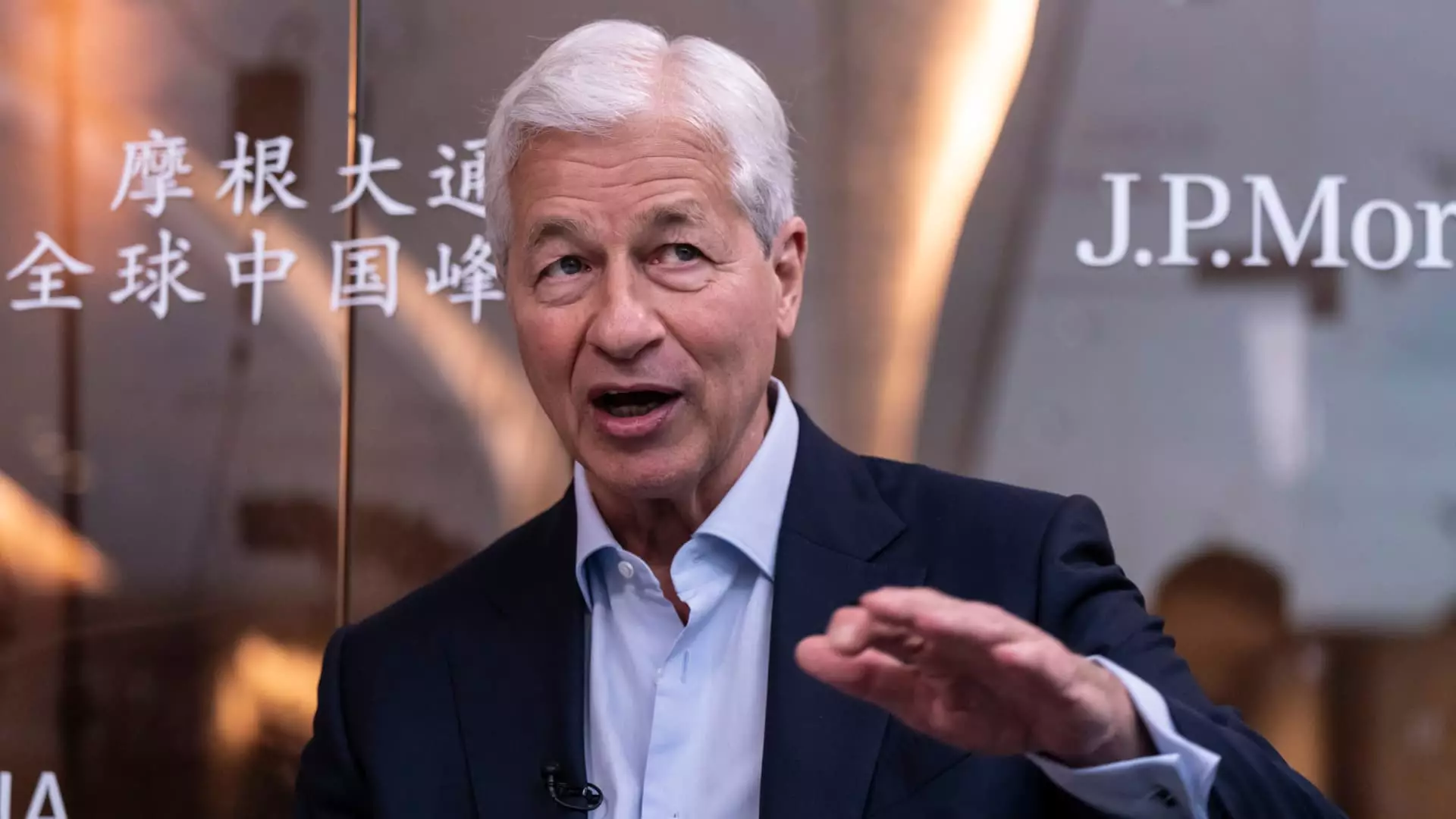As the second-quarter earnings reports loom, there’s a dangerous allure of prosperity promising to bolster investor confidence and market stability. But beneath the surface, this optimism often masks underlying fragility. Companies like JPMorgan Chase, Netflix, and several major banks approach the reports with anticipation and apprehension, yet the narrative frequently shifts from genuine growth to mere market spectacle. This season, expectations are notably muted—a reflection of ongoing economic uncertainties and geopolitical tensions that threaten to undermine the bullish outlook myopic analysts paint. It’s crucial to scrutinize whether these earnings are genuinely reflective of a resilient economy or simply a façade floating on liquidity and superficial sentiment.
Forecasts and Flawed Optimism
Predictions point toward a modest 4.8% growth in S&P 500 earnings year-over-year, marking the slowest pace since late 2023. While numbers appear optimistic at first glance, a deeper analysis reveals cracks in this façade. The market’s reliance on these projections—often driven by a few high-performing sectors—obscures the economic vulnerabilities endemic to the corporate ecosystem. Is this growth sustainable, or is it merely a temporary uplift fueled by cost-cutting and stock buybacks? The persistent overreliance on financial engineering and cost moderation often blinds investors to the real health of these companies, which is far less robust than headlines suggest.
The Banking Sector: A Ticking Time Bomb
Major banks like JPMorgan Chase and Citigroup are at the forefront of this earnings season, offering insights into the broader financial landscape. JPMorgan, despite a history of beating expectations, is facing an increasingly precarious environment. Analysts anticipate a sharp decline in earnings, yet the bank remains resilient, thanks in part to its diversified revenue streams. Still, the narrative of strength is fragile—rising interest rates and potential policy shifts, such as the Fed’s pause or reversal, threaten to sizzle profit margins further. Wells Fargo’s recent struggles illustrate how even sector giants can’t escape the consequences of wide economic shifts; flat revenue and declining interest income portend a more turbulent future. Their stories serve as cautionary tales, revealing that appearances of stability are often deceptive.
Tech Giants and Consumer Cycles: Bubble or Boom?
Netflix’s upcoming earnings are another piece of this complex puzzle. The streaming giant’s reported 13% revenue growth in past quarters couldn’t mask the underlying issues: subscriber saturation, intensifying competition, and the impact of macroeconomic pressures like inflation and geopolitical risks. Yet, analysts anticipate a 45% surge in earnings—an optimistic forecast that may overstate real consumer strength. The tech sector, traditionally a bellwether for innovation, now seems tethered to a delicate balance of hype and reality. Investor optimism risks turning into disillusionment if revenues falter amidst recalibrated consumer spending. The sector’s exuberance, often fueled by speculation and growth narratives, is increasingly divorced from actual profit sustainability.
Financial Engineering and Market Overconfidence
Across all sectors, corporate strategies appear increasingly centered around financial engineering rather than genuine growth. Stock buybacks, aggressive cost cuts, and accounting maneuvers are commonplace tools used to inflate short-term results. While these tactics may produce seemingly impressive bottom lines, they undermine intrinsic company value and obscure long-term risks. This relentless pursuit of immediate gains fosters a dangerous market overconfidence—one that can quickly unravel when economic conditions turn adverse. The recent history of earnings beats, where companies frequently surpass estimates, should not be mistaken as proof of real economic vitality; rather, it indicates a market overly dependent on manipulation and short-term measures.
The Social and Political Consequences
In a broader context, the obsession with quarterly earnings fosters a political environment increasingly detached from the real economic struggles of ordinary citizens. The narrative of corporate resilience and growth often propagates a misleading image of prosperity, masking wage stagnation, rising inequality, and environmental degradation. When investors and policymakers focus narrowly on short-term corporate metrics, they divert attention from the need for sustainable economic policies that prioritize social wellbeing and environmental stewardship. This myopic focus risks further entrenching inequalities and undermining the social fabric necessary for long-term stability.
The upcoming earnings season promises to be another spectacle of hype, but a critical observer must question whether these numbers truly reflect economic health or are merely illusions sustained by market manipulations, political rhetoric, and corporate self-interest. The danger lies in blindly accepting these headlines at face value, allowing optimism to override rational skepticism. A more balanced approach, emphasizing transparency, long-term sustainability, and social responsibility, is essential to prevent the current manic market behavior from spiraling into full-blown crisis. The earnings reports should serve as a wake-up call—reminding us that behind the veneer of prosperity lies a fragile and increasingly unstable economic reality.

Leave a Reply